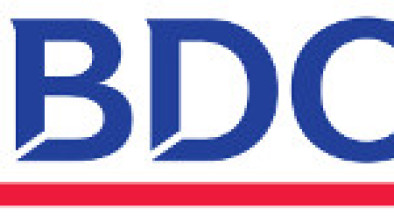Louise Cupples: Questions for professional services leaders ahead of the Autumn Budget

Louis Cupples
Recent press articles are heightening speculation around the potential introduction of a National Insurance levy on partnership profits. Professional services firms may therefore be facing a pivotal moment, Louise Cupples writes.
A thinktank proposal suggests a 6.9% tax on partnership profits - aimed at harmonising the tax burden between self-employed partners and employees - raising an estimated £2bn. While details remain unclear and there are many questions to address, the proposed mechanism would likely involve collection through individual partners’ self-assessments.
Our opening remark is that for most businesses, tax is not the key factor for adopting the partnership model. A partnership structure works well for many businesses where it strengthens the firm’s culture and enables partners to succeed together in shared efforts. A potential levy however raises a series of strategic, structural, and cultural questions firm leaders will want to consider. A radical solution would be for a business to incorporate although before making this decision, firms would need to work through the implications.
There are many issues which should be considered and we have set out some key areas firms will need to start to think about:
1. What could this mean for your firm’s current structure?
The introduction of a National Insurance levy may mean that a LLP is no longer the optimal structure. The implications would need to be financially modelled and compared with alternative structures.
Alongside the relative tax rates, firms should also consider benefits a corporate structure might afford with respect to mitigating the impact of disallowable expenses, and the cash flow benefits of being able to retain working capital net of corporation tax rates.
Considerations extend however beyond tax and firms will need to take into account the non-tax features of a partnership such as its flexibility, autonomy, shared ownership and impact on setting the firm’s culture.
2. Employment status and potential benefits for partners
Firms will need to look at the benefits of partners becoming employees (either in its existing structure or new structure). It is worth considering that employment contracts might allow access to benefits, such as salary sacrifice for pension contributions, and reduce tax-disallowable costs currently borne by partners. Employment offers potential statutory protection that might be attractive to partners as well as the timing flexibility of PAYE.
3. What about international firms?
There are extra considerations for firms with international operations and partners. It is not clear whether the current NI treatment of non-UK source profits or regimes for non-UK partners would continue alongside a NI levy. There is the potential to create inequity between UK and non-UK partners. Firms will need to consider this possible impact and how it might be addressed.
4. Incorporation; a viable strategic option?
Incorporation is not to be undertaken lightly, especially for firms with international operations and partners. In addition, as noted, for many firms the flexibility and autonomy of a partnership and the partnership ethos are key to their identity and long-term strategies.
However, as noted above, incorporation might allow firms to retain profits more tax-efficiently for working capital and lower the effective burden of tax disallowable expenses. Incorporation could also enable more sophisticated remuneration strategies which are currently challenging with full distribution partnership models such as long-term incentive plans.
5. Preparing to respond to the levy
The possible NI levy on partnerships is not a certainty. But it seems that greater alignment between partner and employee taxation is a likely direction of travel.
Previous attempts to align the taxes of the employed and self-employed have demonstrated how complex the process would be so it seems probable that a period of consultation would be needed before a levy is implemented.
We suggest partnerships should set aside time and resources to assess and model the potential impact of the new levy. Firms should explore the range of alternative models and what the process would be for making structural decisions. It will be necessary to engage with partners on the issue and prepare them for potential changes pending further detail.

Louise Cupples is tax partner at BDO







